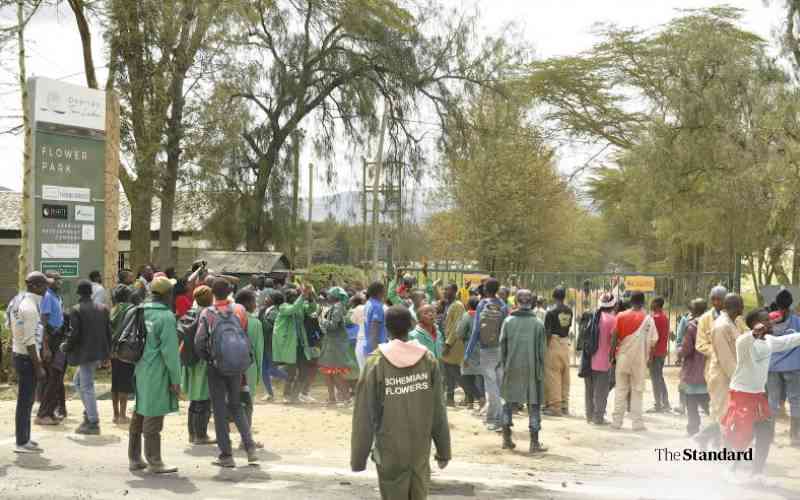
There are growing concerns across the continent over cuts to children services, with several countries and campaigners reporting pernicious impacts. While these cuts are largely attributed to stark realities of global inequality, including debt crises and declining foreign aid, African governments must act quickly and prioritise funding for child protection services despite the challenging economic situation.
Kenya’s budgetary allocation for child protection programmes has declined over the past decade, averaging Sh4.5 billion annually. Even with the creation of a new State Department under the Ministry of Labour and Social Protection, the total budget of Sh11 billion still reflects a troubling gap between the government’s ambitious policy commitments and real investment.
The persistent failure to fund child protection is a grave moral failing and a strategic oversight as the country’s inadequate investment in safeguarding children's futures undermines stability and sustainable development. This dire situation is a "polycrisis," with children facing a severe lack of basic health, education, and safety nets, alongside the rising cases of violence, including sexual exploitation and abuse.
Outdated laws further curtail efforts to tackle sexual violence and abuse, including FGM, trafficking and child marriage as national budgets can’t be allocated for what the law fails to define, uphold, prioritise, or protect. When the law fails to protect children, efforts to mainstream and implement their rights through national policy and budget planning are futile.
Kenya passed the Sexual Offences Act in 2006 (SOA 2006), marking a major milestone in the fight against sexual and gender-based violence (SGBV). With human rights advocacy groups’ clamour for a comprehensive framework, the key anti-SGBV law addressed glaring gaps in legislation, particularly around protection of children.




The SOA 2006 consolidated all sexual offences into a single legal framework, broadening the scope of punishable offences, including gang rape, and clearly distinguished between rape and defilement. Unlike previous laws that framed sexual offences primarily as moral violations, the SOA 2006 reframed sexual offences as crimes against the individual. Notably, it rejected the notion that children can consent to sexual activity, removing this as a legal defence.
Arguably, it remains one of the most significant legislative frameworks in Kenya’s efforts to address SGBV, enabling access to justice for survivors, and holding perpetrators accountable.
However, enacted in 2006, is it fit for today, amid a changing world, ever-evolving forms of crimes, such as in the digital environment, and justice systems that must be more responsive and survivor-centered?
Mounting child sexual exploitation and abuses, coupled with a toothless legal system has sparked widespread calls for urgent action to update the SOA 2006. Once considered groundbreaking, the law cannot be relied on to protect children’s rights as too often it has become one of the barriers they must overcome.
Alarmingly out of touch with today’s realities, it leaves survivors, especially children, vulnerable to the emerging systemic shortcomings, including inadequate protection and delays in justice that too often amounts to justice denied. A 2022 study by COVAW and OSIEA revealed that most SGBV cases take over four years to conclude, with the majority withdrawn before reaching resolution.
Amid the growing concerns over child protection gaps, human rights advocacy groups have once again renewed their call to amend the SOA 2006, pushing for a stronger, more responsive justice system. In collaboration with the government, they are developing a coordinated response to strengthen and finalise the Sexual Offences Amendment Bill which underscores the urgent need for enhanced government accountability, child-centric legislative reform and a responsive justice system.
Key proposals include prohibiting the withdrawal of complaints and out-of-court settlements. To address delays and improve access to justice, the proposed law proposes a one year timeline from the time a case is reported to its conclusion, delivering timely justice to survivors. It also expands the scope of law to address emerging offences such as technology-facilitated abuse, which is a major driver of online sexual exploitation.
These efforts are taking us a step closer to creating the national holistic legal system needed to safeguard the rights of every child.
Kenya is about to get a new sexual offences law. However, this is not unprecedented. In 2016, the Sexual Offences Bill was introduced in Parliament with progressive provisions, including mandatory background checks for individuals seeking jobs involving children. It also sought to ban traditional dispute resolution practices like marrying off children and accepting out-of-court compensation instead of legal action. Despite its promise, the Bill failed to pass in 2017; a missed opportunity that underscores the urgency and importance of getting it right this time.
Stay informed. Subscribe to our newsletter
As stakeholders finalise the process of updating the Sexual Offences Amendment Bill, they must hasten the process, ensuring it is comprehensive, visionary, and authoritative. It must reflect the constitutional commitments, aligning with the regional and international obligations.
Most importantly, lawmakers must treat the Sexual Offences Amendment Bill as a priority, even amid a backlog of pending bills.
Every delay and failure to act leaves another child at risk, another survivor silenced, and another injustice buried in an outdated and out-of-touch law.
The children survivors of today cannot afford to wait for ‘yesterday’s’ law to catch up with today’s injustices.